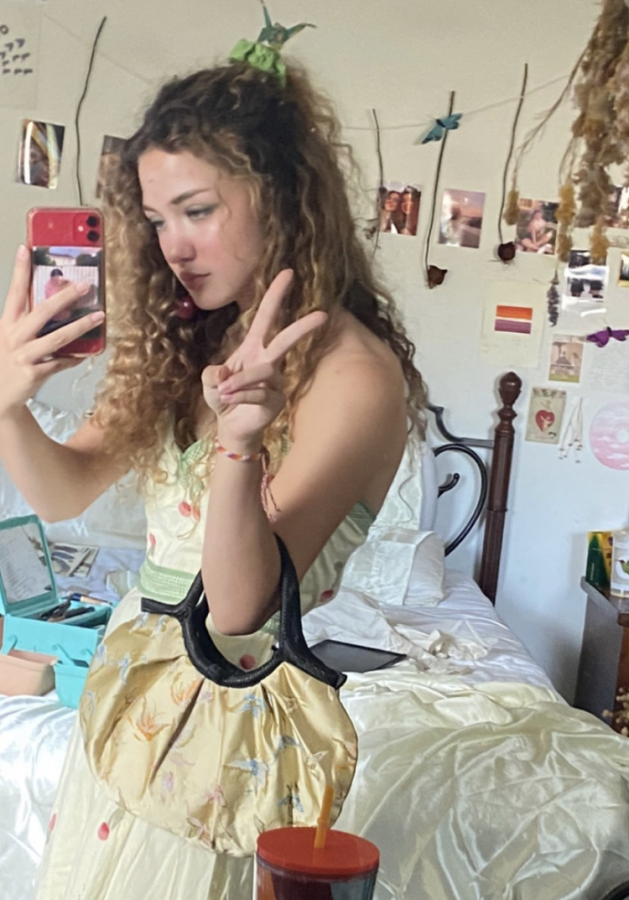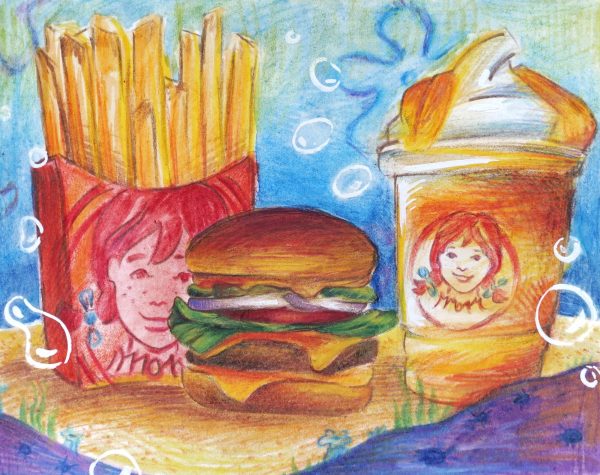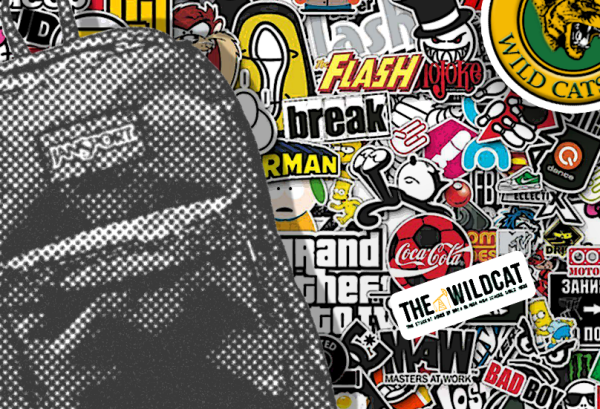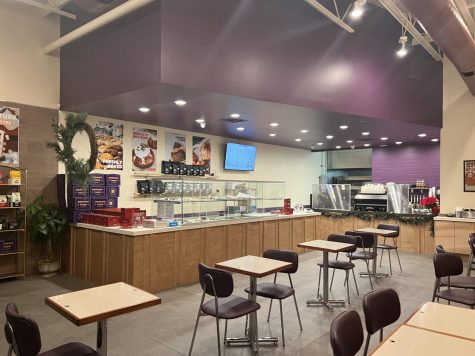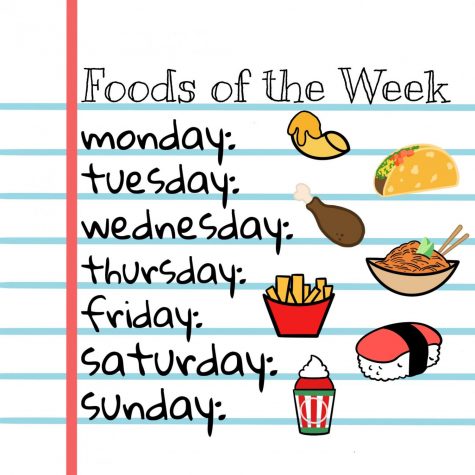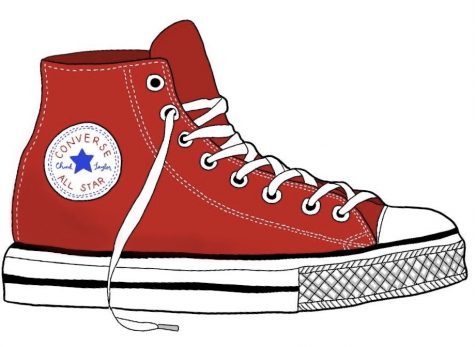Styled by Depop
Carly and Sydney Noller, seniors, turn love of thrifting into a business with Depop app
Photo courtesy of Carly Noller
Carly Noller, senior, poses with a newly thrifted outfit. On the Depop app, Noller has created a small business that has given her the opportunity to sell thrifted and handmade items to other online thrifters like herself.
Depop. The perfect outlet to sell unique pieces to people looking to expand their closets. This past spring and summer, BOHS teens, stuck at home due to quarantine, started looking for creative hobbies to make money, and have fun while doing it.
Founded in 2011, the London-based Depop is a free app for selling thrifted and used items, from clothing to accessories. Depop allows people to thrift online instead of buying brand new clothing.
Carly Noller, senior, used her love of thrifting — buying used clothing at Goodwill and Buffalo Exchange — to inspire her own small business on Depop. Noller enjoys thrifting “because you can find unique pieces for a great price.”
Noller, and her twin sister Sydney, started using Depop “to get rid of old clothes and to get some sort of income during the pandemic.” The Noller sister’s Depop account, @etherealcouture, features both name brand and vintage clothing. Recently, they have also started selling hand-made jewelry.
Noller expressed that she would “totally” recommend Depop to teens who are looking for a way to sell clothing and launch their own small business. Depop is “user friendly and a great way to thrift during the quarantine [period] without endangering others, and it’s a great way to learn customer service skills,” Noller said.
A downside to Depop is that users resell thrifted clothing items at higher prices in order to make a bigger profit. An article from the Berkeley Economic Review pointed out that because of Depop sellers, “there are less quality items left on the thrift store shelves for those who truly have no other affordable options,” which is why thrift stores are raising their prices.
Some teenagers, like the Noller twins, have found ways to bring a unique take on re-selling their thrifted finds to the app. Depop users create “style bundles” out of clothes they have thrifted, or even thrifting specifically for the person buying. They take the buyer’s measurements and create a vision board-esque page that represents the buyer’s style. The Depop user then puts together a package of thrifted items to send to the buyer.
Thrifting is a growing industry that helps to offset the negative effects of “fast fashion.” Fast fashion is cheaply made clothing that is quickly mass produced and put into stores. This industry is notorious for putting their workers in unsafe working conditions and using child labor. Lifestyle website The Good Trade stated “garment workers [who are] putting together fast fashion items are undoubtedly being paid well below the minimum wage,” contributing to the inhumane factor of mass produced fashion.
Fashion also requires massive amounts of resources, and is extremely wasteful. According to the United Nations Environment Program, the fashion industry is responsible for 10% of yearly global carbon emissions and this is expected to increase by over 50% by 2030. As a result of this, shopping sustainably is becoming increasingly popular — a 2019 report by ThredUp shows that one in three teens thrift and that the thrifting market will double to $51 billion by 2023.
Thrifting allows for the ethical consumption of clothing that teenagers enjoy spending their money on. With apps like Depop, thrifting becomes an easier way for teens to invest in new clothing in a way that doesn’t harm the environment like fast fashion does. The Noller twins are an example of how to shop sustainably through an online business like their own.
Your donation supports the student journalists at Brea Olinda High School! The contribution will help us purchase equipment, upgrade technology, and cover our annual website hosting costs.
Melea Altermatt, senior, is thrilled for her third year on the Wildcat staff as a Lifestyle co-editor, A&E co-editor, and Social Media co-manager....
Senior, Katie Kudron is a Lifestyle co-editor, A&E co-editor, and social media co-manager for the Wildcat newspaper. She is on the school's Varsity...


